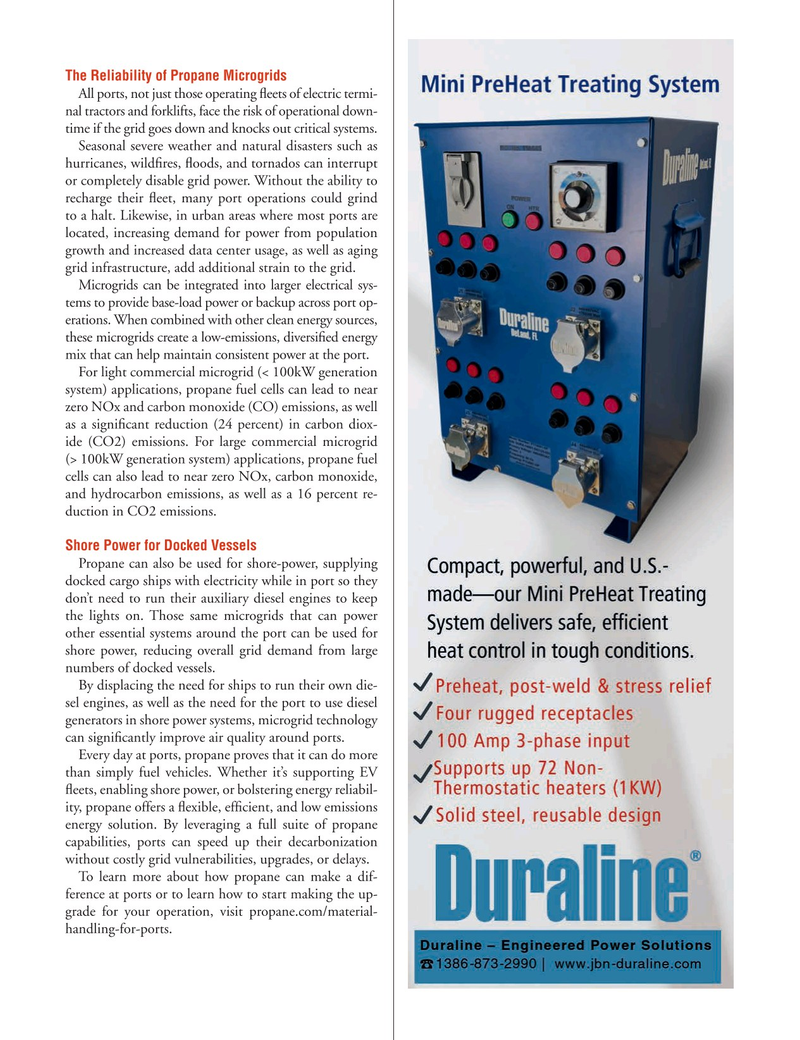
Page 17: of Marine News Magazine (November 2025)
Read this page in Pdf, Flash or Html5 edition of November 2025 Marine News Magazine
The Reliability of Propane Microgrids
All ports, not just those operating ? eets of electric termi- nal tractors and forklifts, face the risk of operational down- time if the grid goes down and knocks out critical systems.
Seasonal severe weather and natural disasters such as hurricanes, wild? res, ? oods, and tornados can interrupt or completely disable grid power. Without the ability to recharge their ? eet, many port operations could grind to a halt. Likewise, in urban areas where most ports are located, increasing demand for power from population growth and increased data center usage, as well as aging grid infrastructure, add additional strain to the grid.
Microgrids can be integrated into larger electrical sys- tems to provide base-load power or backup across port op- erations. When combined with other clean energy sources, these microgrids create a low-emissions, diversi? ed energy mix that can help maintain consistent power at the port.
For light commercial microgrid (< 100kW generation system) applications, propane fuel cells can lead to near zero NOx and carbon monoxide (CO) emissions, as well as a signi? cant reduction (24 percent) in carbon diox- ide (CO2) emissions. For large commercial microgrid (> 100kW generation system) applications, propane fuel cells can also lead to near zero NOx, carbon monoxide, and hydrocarbon emissions, as well as a 16 percent re- duction in CO2 emissions.
Shore Power for Docked Vessels
Propane can also be used for shore-power, supplying docked cargo ships with electricity while in port so they don’t need to run their auxiliary diesel engines to keep the lights on. Those same microgrids that can power other essential systems around the port can be used for shore power, reducing overall grid demand from large numbers of docked vessels.
By displacing the need for ships to run their own die- sel engines, as well as the need for the port to use diesel generators in shore power systems, microgrid technology can signi? cantly improve air quality around ports.
Every day at ports, propane proves that it can do more than simply fuel vehicles. Whether it’s supporting EV ? eets, enabling shore power, or bolstering energy reliabil- ity, propane offers a ? exible, ef? cient, and low emissions energy solution. By leveraging a full suite of propane capabilities, ports can speed up their decarbonization without costly grid vulnerabilities, upgrades, or delays.
To learn more about how propane can make a dif- ference at ports or to learn how to start making the up- grade for your operation, visit propane.com/material- handling-for-ports.

 16
16

 18
18
